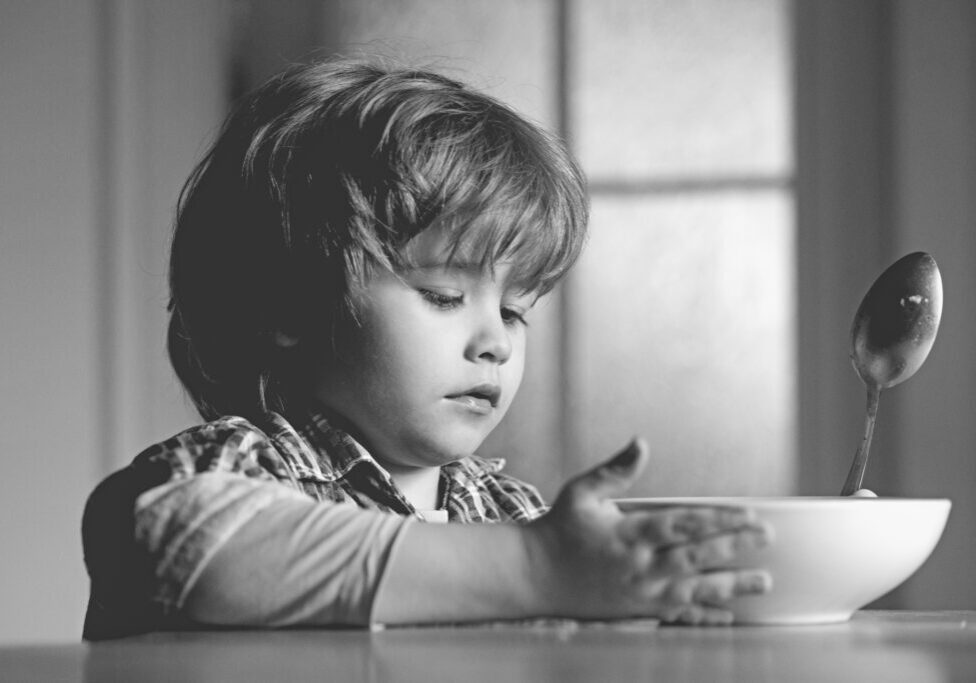Domestic Abuse & Food Insecurity Fuel One Another

By: Hillary Waterman, Community Prevention Educator
and Joan LeMole, Development Director
Domestic abuse, sometimes called Intimate Partner Violence (IPV), goes hand in hand with food insecurity. People are considered food insecure whenever they have limited access to safe, healthy food. Although food insecurity is not a cause of abuse, each can intensify the negative effects of the other. For example, domestic abuse can make survivors and their families more vulnerable to food insecurity when abusers strategically withhold money or other resources in order to maintain control. They may limit access to groceries or spend household funds on things that benefit only themselves, making it difficult for their families to survive from day to day, let alone escape abuse. When a survivor decides to leave, they often find themselves in crisis with few financial resources to feed themselves and their family. According to the Annie E. Casey Foundation, children from households experiencing food insecurity often have to skip meals or even go a whole day without eating.
Severe hunger impacts people on many levels—physical and mental health, emotional security, ability to work, think clearly, and care for children. It is also shown to have long-term, irreversible health effects. School children need adequate nutrition in order to function and learn with their peers. The website usafacts.org reports that 12.3% of Maine households receive SNAP benefits, commonly called food stamps. U.S. Hunger, a national nonprofit organization committed to understanding the root causes of hunger and focused on providing healthy food for children, notes that in the United States, 34 million people lived in food-insecure households in 2021. Nearly 25% of households headed by a single woman experience food insecurity, more than double the national average. The rate increases even more if the household income is less than $25,000 or if the single head of household is non-white or from any marginalized community3. This same study found that fifty-two percent of women who applied for food assistance through U.S. Hunger routinely skipped meals to help ensure enough food for other household members. These facts are true even when abuse is not part of the family picture and highlight the significant gender gap in food insecurity.
Some research has shown there is a “bi-directional” relationship between food insecurity and intimate partner violence. According to Hatcher et al, two factors in particular help disrupt this relationship. One is a willingness on the part of male partners to be flexible in their attitudes about gender norms. However, abusive people often have more rigid views of male and female roles. Evidence from Hatcher’s study found that when women expected access to finances and decision-making, it was perceived as a direct challenge by male partners who were invested in a traditional structure of gender and authority in households. Another potential safeguard, strengthening and increasing social ties, is nearly always compromised by abusers, who work hard to undermine their partners’ relationships and keep them isolated.
Many victims feel the need to stay with an abuser who may provide financial support, particularly if there are children in the household. To offset this additional barrier, advocates at New Hope Midcoast help victim-survivors develop safety plans that include ways to meet their basic needs in any situation, whether they choose to leave or not.
When clients decide to separate from their abusers and seek emergency shelter or longer-term hotel stays, they face two major obstacles to food security: 1) lack of reliable transportation to get supplies, and 2) lack of adequate cooking facilities in emergency shelters or hotel rooms. New Hope advocates can help with transportation and connect survivors with local food pantries that offer flexible hours and provide food that can be easily prepared with minimal equipment or appliances. Alleviating these issues during transitional periods is key to assisting victims of domestic abuse and to ensuring positive outcomes.
New Hope Midcoast collaborates with a network of organizations to develop viable plans for survivors that includes food banks, hotels, municipalities, and generous members of Midcoast Maine communities. Advocates work in coordination with victims to help them make the best and safest decisions for themselves and their families. We know that enabling people to provide for their own basic needs empowers them to move forward.
Ultimately, food is more than just sustenance and security to people. It is independence and dignity. For those who experience domestic abuse, the ability to access and control their own food is a powerful step toward reclaiming personal autonomy. Recognizing the vital role that food plays in the safety and empowerment of survivors is essential to building more just and resilient communities.
